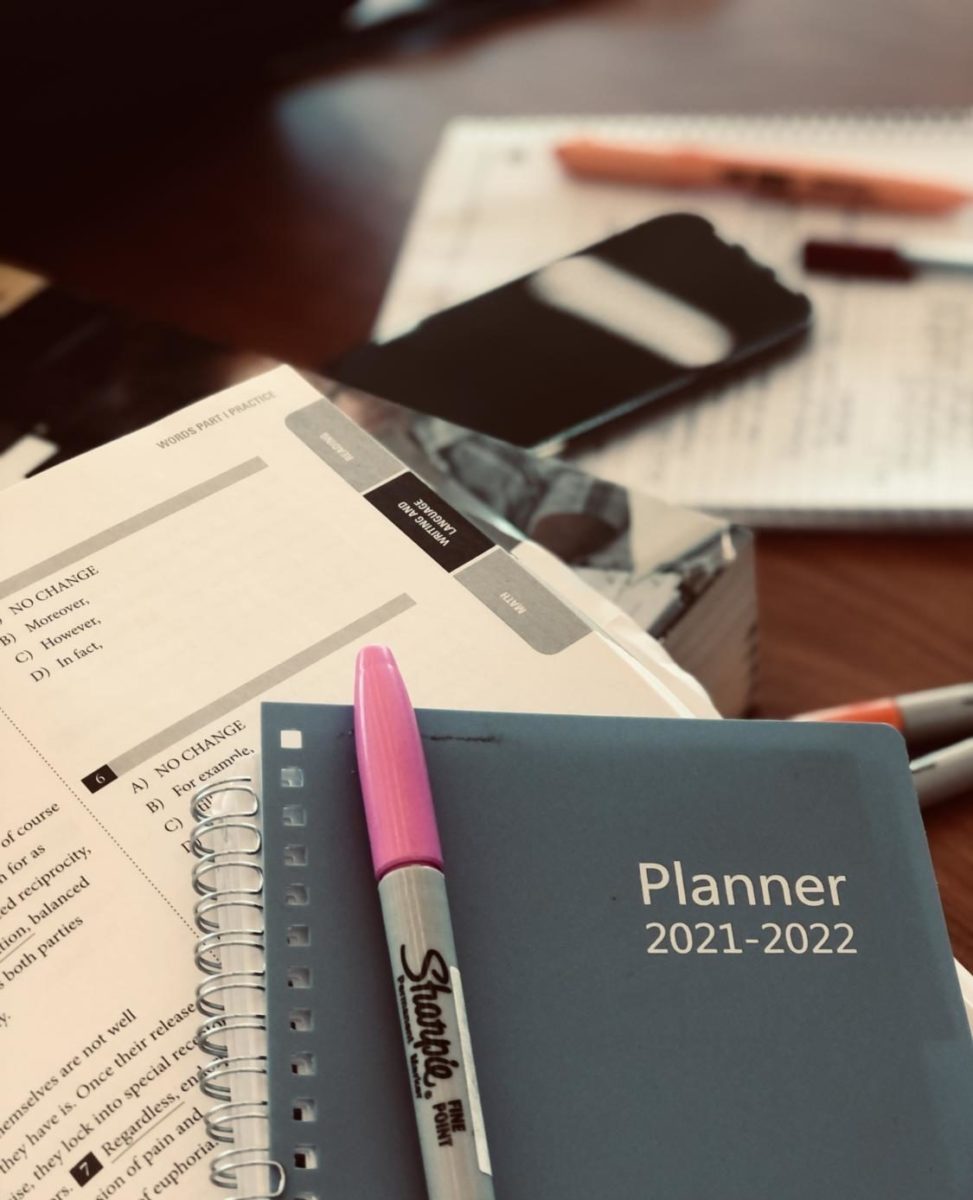Learning to Deal With Stress Essential After Pandemic
According to the “Computers in Human Behavior” report on Aug. 31 the transition from online school during the COVID-19 pandemic to in-person school has without a doubt increased anxiety/mental illness problems in kids of every grade level.
The repercussions of covid still affect kids academically and even mentally, and sometimes school can either help or break a student in the process of dealing with their own problems.
“The amount of work we get affects me and most of my friends,” junior Britney Nguyen said. “The amount of work I get from missing just one day in addition to the work I have to do the day I get back to school definitely takes a toll on me. I never know what to do first which makes my grades drop. It doesn’t help at all when someone close mentions it and scolds you about it either.”
The amount of work given during online school and even now is a common factor affecting students, they say.
“I remember in my ninth-grade year when I was online, I was really struggling to get my work done and getting good grades,” sophomore Savannah Wallace said. “Since I was struggling to turn in assignments it made me get bad grades which made me feel like a failure. I was really affected by it. It didn’t help that my parents got frustrated with me about my grades either because they didn’t understand how hard it was for me to be motivated. And that made everything worse.”
During the past two years of being in quarantine, many kids got used to being at home and got really anxious for the big return to school, which has affected their mental health.
“I think a lot of our students and family’s experiences last year with covid, and its isolation, [it] was just difficult for a lot of people,” counselor Courtney Gregg said. “And just that lack of socialization, it removed a lot of support for a lot of students and even adults too. It’s also just a big campus, so it can be difficult to be here. Especially since it’s an overwhelming stimuli when you talk about the sounds and the number of people and the things you are seeing. It just depends on who you are and what you might be going through.”
Choir teacher Carla Hardy said the campus being big plus the amount of returning students this year led to an increasing amount of conflict between students as well as anxiety.
“I think that it is a reciprocal relationship and school affects mental health and mental health affects school.” Carla Hardy said.” And that is the cycle that can either benefit people or be a real boundary for people in schools, and I think that we’re in the boundary place right now because I think it is hard or near impossible for our minds to accept and process new information when our minds are in survival mode.”
Britney agrees with Mrs. Hardy.
“[With] school drama or fights- I know it takes a toll on people,” Britney said. “Especially when students come up to teachers or counselors for problems the situation doesn’t get taken care of- based on personal experience- they usually just give their opinion on the situation and just mention grades, which doesn’t help at all.”
Hardy says the problems this year do have answers but they’re not one-size-fits-all answers.
“I don’t know that there is one right answer for every situation,” Hardy said. “And that makes it really difficult as a teacher to meet all those needs of all 30 people in your class when there are 30 separate needs and only 50 minutes.”
Although many mental health issues arise from school, Hardy said students need to know they’re not alone.
“There is no shame in having a struggle in your mind or heart,” Hardy said. “But our hope is whether it’s here at school or outside of school that all of us can find or take the opportunity to identify what the root of the problem is and address it in a healthy way and not with unhealthy coping mechanisms.”



